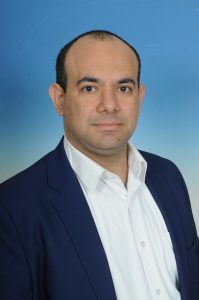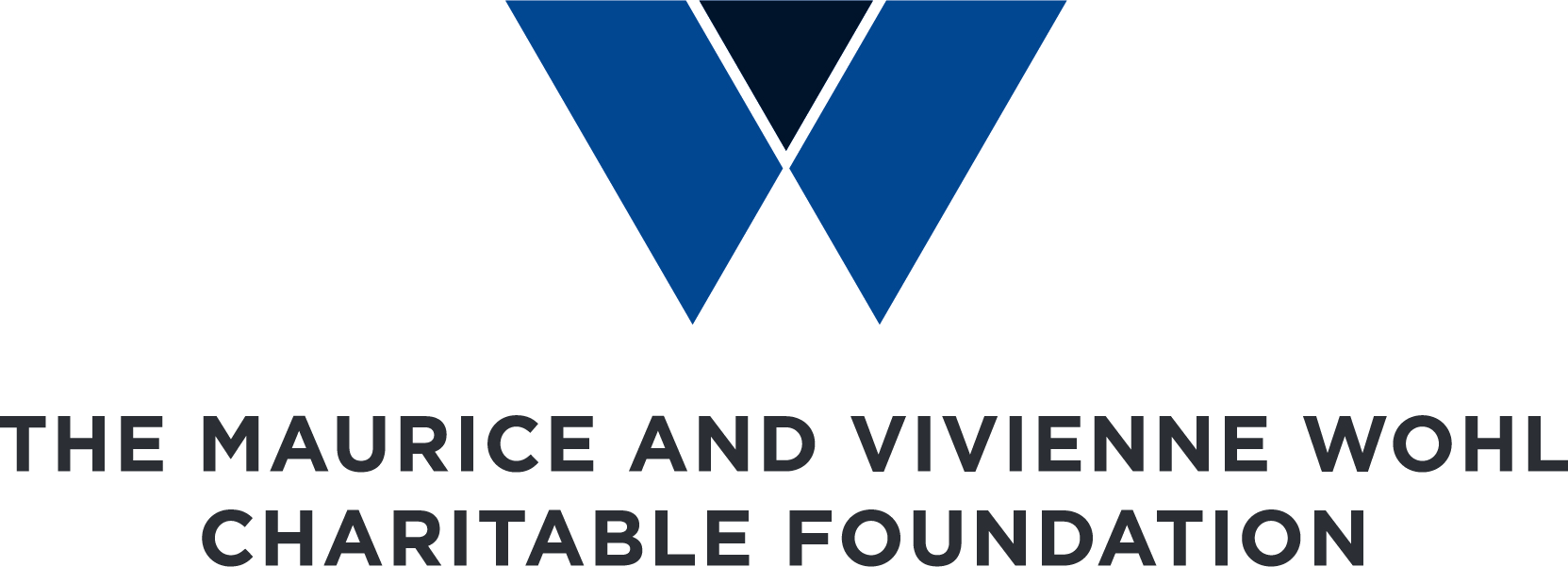The Hebrew+ program, initiated by the Labor Employment Administration and Joint Tevet, promotes the integration of the Arab community into the labor market, by lifting the language barrier and encouraging healthy communication as a tool for a more diverse employment space.
Mastery of the Hebrew language is one of the basic conditions for optimal integration in employment, along with skills and professional training for the various positions. Language proficiency, vocational training and a set of skills adapted to the new world of work, together strengthen a person’s occupational ability. For adults in Arab society, mastery of the Hebrew language is the entry ticket to higher education and the labor market.
The “Hebrew Plus” program presents a modular model for learning the Hebrew language, specially adapted to the needs and characteristics of Arab society, in an occupational orientation and varying hours, in accordance with the level of the individual and many languages within the population, says Efrat Kahana Bekler.
Guy Fishkin, in collaboration with the Population Employment Administration and JDC Tevet.
Did you know? Labor productivity in the Israeli economy is lower by 15% than the OECD average, despite developments in the local labor market and Israel being an advanced high-tech nation. The gaps are narrowing at a slow pace, since they have many causes, a leading one being skill differences between different groups within the population: According to the PIAAC index, Israel has the largest gap between high and low skilled workers!
The Arab community, whose integration into the labor market serves as a national interest in order to increase productivity and growth of the economy, is one of those group. Gaps in skills, readiness and proficiency in the Hebrew language are considered an obstacle, preventing the Arab community from progressing, improving socio-economic mobility and standard of living.
The most obvious expression of this is the inability to realize their potential within the Israeli labor market. Lack of proficiency in the Hebrew language, which manifests as low reading and writing skills, directly affects their ability to communicate and converse. In an attempt to change this reality, that leaves quite a few Arab citizens behind in terms of employment, the Ministry of Economy and Joint Tevet are working to lift the language barrier and allow for their integration in all sectors.
“Studies have shown that there is a positive correlation between proficiency levels in the Hebrew language, employment integration and level of wages,” says Ella Bar-David, senior director of quality employment at the Ministry of Economy’s Population Employment Administration. We often see that Hebrew levels, even among outstanding students in educational institutions within the Arab community, are very basic, and do not allow for real integration into the labor market. As a solution to this problem, we decided to create a dedicated response team, in partnership with the Population Employment Administration and Joint Tevet, that will allow candidates to get their foot in the door and receive an equal opportunity to prove their skills. ”
Such assistance is realized via the Hebrew+ program, a unique Hebrew learning model for Arabic-speaking graduates, that was developed in recent years, and is designed to significantly improve the Hebrew levels of its participants, as well as equipping them with a practical toolkit to ease their integration into the Israeli job market.

“This groundbreaking program was designed to standardize the study of Hebrew as a second language”, Bar-David adds, as she outlines the main objectives of the program. “Hebrew+ is divided into four levels, including one for illiterate participants, coming from Jerusalem, villages in the north, Negev settlements and other areas. To date, the program is funded thanks to contributions from the Labor Administration, and it is expected to expand in coming years via a budget consolidation that was made as part of Government Resolution 550 for the economic development of the Arab society.”
Bar-David adds, “Our vision is to increase the number of participants in the program from 4,000 to 40,000 within five years from today. This will be our shared triumph. It is clear to us that in order to meet this goal, we must promote hybrid learning combined with online courses. Up until now, we were able to raise a budget of about six million ILS, intended solely for the development of digital Hebrew courses, that are offered free of charge to every citizen, large employers, and educational institutions. It is worth noting that the first digital course within the Hebrew+ framework is planned to launch this coming April as part of the “Digital Israel” platform (IL Campus) and to be the first of many future online courses”.
Language as a Tool for Occupational Diversity.

“At Joint Tevet, we possess a broad perception of diversity and inclusion,” says Susan Hassan-Dahr, Deputy CEO of Joint Tevet. “For a few years now, there’s been an increase in the integration of new communities into the Israeli workforce, however, inequality still exists. Therefore, we are focusing on developing the skills of these populations so they can integrate into the labor market, but more importantly, continue advancing their careers in the future”.
This is the program’s sixth year of operation. To date, about 4,000 participants took part in it, most of whom have managed to bridge their gaps in discourse and speech, as they understand the importance of the Hebrew language for assimilation into the Israeli labor market, especially into organizations and companies in which Hebrew is the dominant language. ”
“The situation today is such that among many Arab students graduating from high school, there is a considerable gap in terms of their ability to develop discourse and daily interactions in Hebrew – which makes it difficult for them to advance to their next stage in life, whether by being employed, acquiring a profession, or succeeding in the academic world.” Adds Said Diabat, program manager at Joint Israel Tevet. “The program we developed allows us to bridge gaps that were created over decades and provide thousands of young people the necessary tools and skills for career success, in an honest attempt to reduce inequality. ”
Diabat describes a series of developments within the framework of the program that were made specifically for the Arab community and were proven to improve Hebrew language proficiency. Cultural adaptations were made so that the material will speak to Arab citizens. For example, incorporation of public figures or opinion leaders from Arab community, alongside descriptions of geographical areas that relate to the Arab community. In addition, the material combines skills and competencies that are relevant for the labor market, like the ability to work in a dynamic environment, integration within a diverse team, and the ability to self-brand and self-market. All of those are offered, in addition to innovative developments of pedagogical materials, specifically designed for learning Hebrew as a second language. Simultaneously, we are heavily involved in pedagogical training of teachers, as we understand the paramount importance of a skilled staff that can work directly with the Arab community, and lead participants to achievements while still considering intercultural differences. To date, more than 100 teachers across the country were trained as part of the program, and this is only the beginning.”
Another element Diabat seeks to emphasize are digital developments that include special screening tests that examine participants’ Hebrew skills. “Division into levels is made by using a specialized digital test. An extremely important test tool, it reflects back to the participants their Hebrew language level. The assessment is built according to the international CEFR ranking and is a success with the program’s operators, who use it to create same-level study groups, as well as with participants, who receive a true assessment of their abilities, indicating where they need to improve in order to reach the required level of Hebrew that is relevant for the labor market.
Is there a connection between the pandemic and the need for more Hebrew speakers in the labor market?
Diabat: “The pandemic sped up many of our processes, and in a sense, it accelerated the development of innovations we were expecting to launch later on. If we were expected to transition into working remotely in 2030, that ended up happening a decade earlier,” noted Diabat while adding, “With Hebrew+ we took on the challenge posed by the pandemic, and through a quick adaptation of content to a digital format, we developed tools for teaching staff and coordinators in employment bodies, and created an infrastructure that helped with keeping Hebrew+ active even from a distance. Today, dozens of courses are delivered remotely at any given moment and are attended by hundreds of job seekers. Hebrew+ is making its small contribution to the national effort, as we help to increase the number of workers from the Arab community by removing the language barrier and encouraging healthy communication as a tool for a more egalitarian space.”
What are the fundamental principles of the program in relation to issues of employment diversity in the labor market?

Hassan-Dahr: “We hear a lot about the need for diversity in the workplace. It should be understood that this is not just about adequate representation and raising employment rates in all segments of the Israeli population, but also the ability of organizations and workplaces to allow employees to express themselves and the culture they came from.” Hassan-Dahr added: “It is important to note that at Joint Tevet we are also working to promote familiarity with the Arabic language and culture on part of the employer, as part of a strategic move to promote multiculturalism in the labor market. When communicating, all parties share the responsibility. If employers are familiar with the background of their candidates and employees, and the candidates improve their knowledge of the Hebrew language, it’s beneficial for both parties”.
“For the Labor Administration and Joint Tevet, Hebrew+ is part of an entire system that sees diversity as a two-way process in which both the employee and the employer take part. The language spoken in the workplace is a fundamental component in building healthy communication. Moreover, mastery of the language used in the workplace will allow employees to better integrate, succeed in tasks, expand their horizons and even be promoted to advanced positions. For this reason, the improvement of Hebrew language skills of workers from the Arab community is essential for entering and successfully integrating into the Israeli labor market.”
“It was proven that in a diverse organization that includes different population groups, the effort and investment pay off for employers. Beyond encouraging creative and innovative thought, diversity often maximizes profits and opens up new markets for the business. It bears fruit for everyone involved,” Bar-David sums up.
For more information about the program, look up “Hebrew+” on the Labor Administration’s website and the Joint’s knowledge library.





